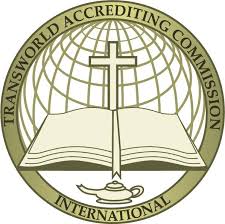
Emmanuel Bible College and Seminary (EBCAS) operates as a private institution in the state of California, with religious exemption from the State Department of Education. This exemption allows the institution to offer degree programs designed specifically for religious vocations, such as ministry, preaching, and other forms of Christian service, without the need for oversight or accreditation from secular academic bodies.
EBCAS holds a religious exemption from the California Department of Education, meaning it is not required to seek state authorization or accreditation for its degree programs. This exemption is granted because the college’s primary mission is to train individuals for Christian ministry and other religious vocations. The institution maintains its religious autonomy to design courses, curricula, and degree programs that align with its biblical convictions and faith-based principles.
EBCAS makes no claim that its educational offerings are equivalent to those of secular state universities or colleges. The focus of its academic programs is on biblical studies, theology, and ministry training, rather than on general secular education. This distinction means that the credits and degrees conferred by EBCAS are intended for Christian service and are particularly geared toward individuals pursuing roles in ministry, pastoral care, and other faith-based vocations, rather than for use in secular careers.
EBCAS chooses to remain separate from state educational systems in order to preserve its religious freedom and the integrity of its mission. This allows the institution to develop customized curricula that reflect its faith-based teachings without the constraints or oversight of secular accreditation bodies. By maintaining this autonomy, EBCAS is able to remain true to its biblical convictions and provide a distinct educational environment focused solely on preparing individuals for service in the Christian faith.
EBCAS is not affiliated with the California Department of Education or the U.S. Department of Education, meaning it does not participate in federal or state educational programs, student loan systems, or accreditation processes that are typical for secular institutions. Credits and degrees earned at EBCAS are specifically intended for those who plan to serve in Christian ministry and related religious fields, and they are not typically recognized by secular employers or educational institutions.
In conclusion, Emmanuel Bible College and Seminary (EBCAS) offers a faith-centered education for those pursuing religious vocations. While it is exempt from state oversight and accreditation, the institution is committed to providing high-quality education rooted in biblical truth, aiming to equip individuals for Christian service. Students attending EBCAS should understand that its degrees and credits are designed for ministry-related roles and may not align with secular academic or career paths.
You cannot copy content of this page.